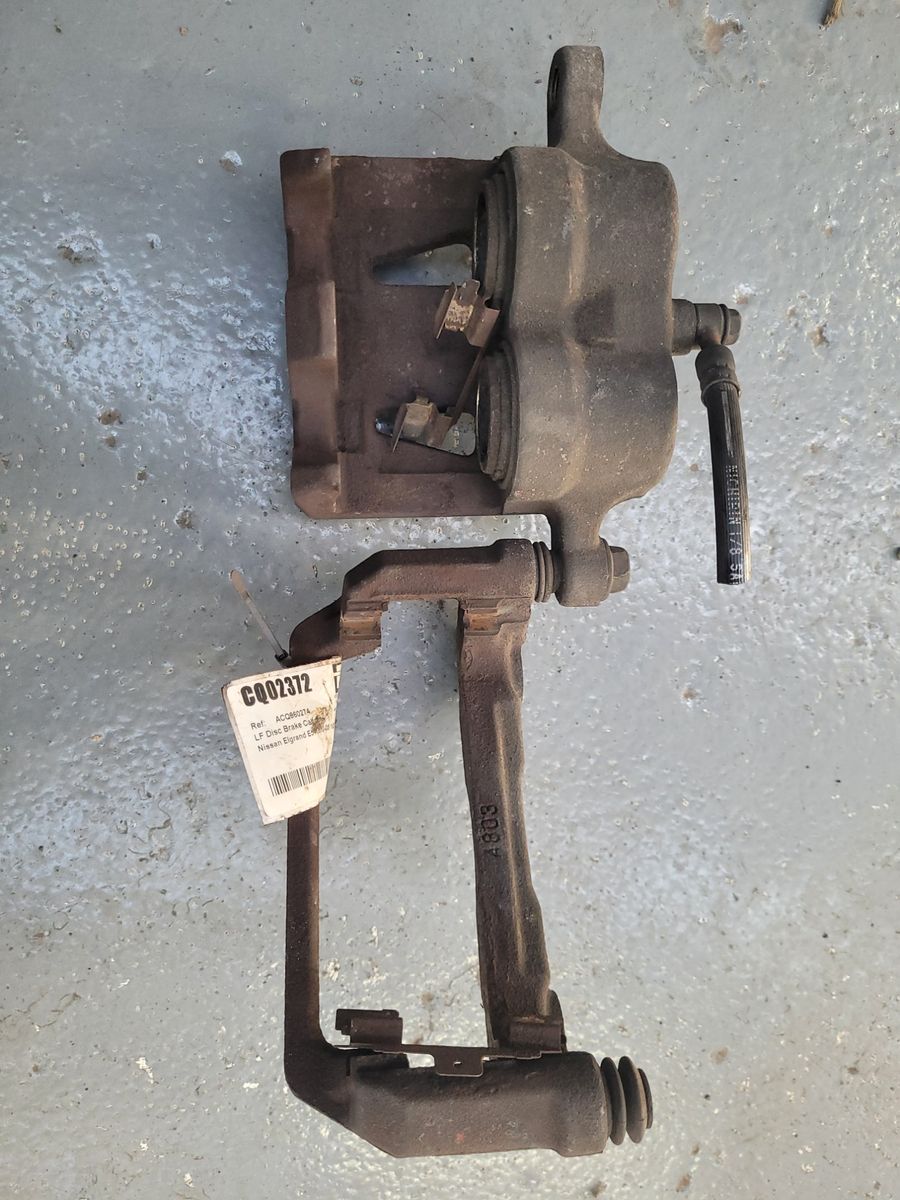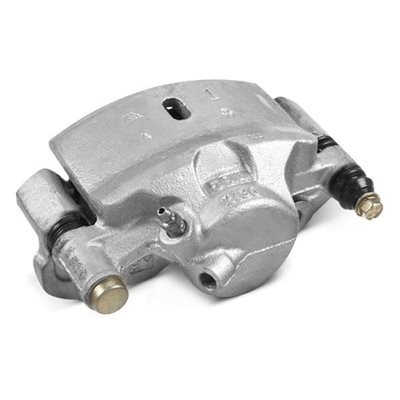About the brake calipers:
The brake calipers are a key part of your car’s disc braking system. Their role is to slow down the car with the help of the brake pads housed inside. The brake caliper fits like a clamp around the disc so that when you apply the brakes, it forces the pads against it. This creates friction, which allows your car to slow down or stop.
Like any other part of your braking system, problems with the brake calipers can affect the stopping distance of your vehicle. This can affect its safety and potentially cause your car to fail its Warrant of Fitness (WOF).
Learn more about how brake calipers work
When should the brake calipers be replaced?
Brake calipers generate a huge amount of heat. This heat can cause damage and corrosion to the calipers. Because temperatures inside the calipers reach over 200 degrees, any water that has found its way inside will boil. When moisture boils repeatedly, it can eventually cause damage to internal components and result in the caliper wearing.
On modern vehicles, it is not uncommon for brake calipers to last for at least 10 years of use. With proper care and regular brake fluid changes, they can even last the entire life of a vehicle. However, the can still be prone to early issues depending on your driving and car servicing habits.
How to extend the life of your brake calipers
- Proper Brake Fluid Maintenance: Maintain proper brake fluid levels and replace the fluid as recommended. Contaminated brake fluid can lead to caliper corrosion and damage.
- Gentle Braking Habits: Avoid aggressive braking to prevent excessive stress on the calipers. Practice smooth and gradual braking.
- Prevent Excessive Brake Heat: Avoid riding the brakes for extended periods, especially during downhill descents. Downshift when appropriate to reduce the load on the calipers.
- Prevent Corrosion: Apply a protective coating or utilize caliper covers to shield them from corrosion-causing elements.
- Promptly Address Brake Issues: Address any symptoms of caliper or brake system problems promptly to prevent further damage.
- Professional Installation: Ensure brake pads and related maintenance are done by a qualified professional to prevent caliper damage or system malfunction.
By following these practices, you can help extend the lifespan of your brake calipers, ensuring reliable braking performance and safety. Refer to your vehicle’s manual and seek professional advice for specific maintenance recommendations tailored to your vehicle.
Symptoms of a damaged brake caliper:
When your car’s brake calipers are not functioning correctly, they may produce some of the following symptoms:
- Uneven Brake Pad Wear: A damaged caliper may not apply even pressure to the brake pads, resulting in uneven wear. You may notice that one brake pad wears down faster than the others. Uneven wear can lead to decreased braking performance and may cause the vehicle to pull to one side during braking.
- Sticking or Dragging Brakes: A damaged caliper can cause the brake pads to stick or drag against the rotor even when the brake pedal is released. This can lead to excessive heat generation, accelerated brake pad wear, and decreased fuel efficiency. You may feel the vehicle pulling or a dragging sensation while driving.
- Reduced Braking Power: A malfunctioning caliper may not exert sufficient pressure on the brake pads, leading to reduced braking power. You may notice that it takes longer to bring the vehicle to a stop or that the brakes feel less responsive than usual.
- Squealing or Squeaking Noises: A damaged caliper can cause the brake pads to make unusual noises during braking. Squealing, squeaking, or grinding noises may indicate that the caliper is not applying even pressure or that the brake pads are excessively worn.
- Brake Fluid Leaks: A damaged caliper may develop leaks, leading to a loss of brake fluid. If you notice fluid pooling near the wheels or observe a drop in brake fluid level in the reservoir, it could be a sign of a leaking caliper.
- Abnormal Brake Pedal Feel: A malfunctioning caliper can affect the brake pedal feel. You may notice a spongy or soft brake pedal, where it requires more effort to engage the brakes effectively. Alternatively, you may experience a pulsating sensation or vibrations in the brake pedal during braking.
If you notice any of thes symptoms, it’s important that you have them addressed sooner rather than later. Brake problems can cause you to have difficulty stopping and slowing down, leading to increased risk of accidents occurring on the road.
Brake Caliper Replacement Service in Hamilton
Is your car in need of new brake calipers? If so, we can help! At Grimmer Motors, our team of experienced mechanics can remove and replace a damaged brake caliper. This will allow for improved stopping distance and better control of your car while braking. A brake caliper replacement will also increase the lifespan of your brake pads and discs.
For new brake calipers in Hamilton, contact Grimmer Motors today!


